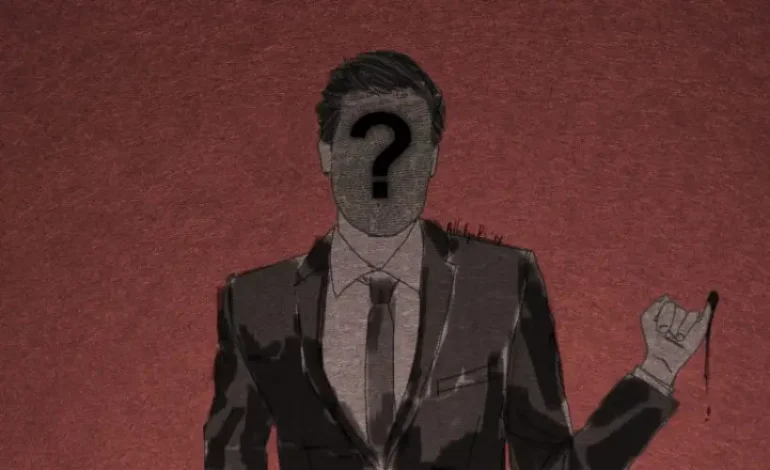The Virtual Election: The Race for Presidency on Social Media
Priesnanda Dwisatria could not wait for the election to be over, so that his social media newsfeed would be back to normal.
“There’s only one word to describe it, surreal,” said the 38-year-old filmmaker.
“Social media campaign is like a double-edge sword. Everybody has a smartphone, so information easily spreads, but so does rumor. And the closer we get to the elections, the more intense it gets. News, rumors, smear campaigns are all mixed up. I just can’t stand the noise.”
Social media is an obvious game changer in this year’s presidential election. With Indonesia being the social media capital of the world, the two presidential candidates Prabowo Subianto and Joko Widodo have been quick to capitalize on its potential, intensively utilizing social media channels for their campaigns in this two-horse race.
Various data showed that Indonesia has about 40 million to 50 million Internet users, or up to 20 percent of the population, and 90 percent of the users have access to social media.
And as the country is experiencing the most polarizing and tight presidential election ever, social media has become a fierce battleground for both candidates – the modest Jakarta Governor “Jokowi”, as he is affectionately known, and Prabowo the fiery military man.
So far, Jokowi seemed to be the topic of more number of positive conversations than Prabowo, with 72 percent over 28 percent, according to Politicawave, a site monitoring political conversation on social media. Jokowi is also 60 percent more discussed on social media than Prabowo at 40 percent.
However, Politicawave said that Jokowi was also the biggest target of smear campaign, with the number of negative conversations related to Jokowi reaching 67 percent, twice that of Prabowo.
Analysts said that the Prabowo camp has a better structure and are more prepared in utilizing social media in their campaign, resulting in more consistent and uniform messages and better ways to counter smear campaign.
Politicawave director Yose Rizal said Prabowo’s social media campaign links the accounts of the candidates, his party Gerindra and party officials, so the team can control the message.
“Jokowi’s campaign lacks a structure, because many of his social campaigns consist of volunteer networks that are not affiliated with the political parties,” he said.
“The good thing is that it widens the outreach, but it isn’t managed well and lacks the capability to counter smear campaign.”
Muninggar Sri Saraswati, university lecturer and PhD candidate from Australia’s Murdoch University, whose dissertation is on social media in election campaign in Indonesia, said Prabowo’s social media campaign has started even way before the legislative election on April 9, when he used the tagline “Gerindra wins, Prabowo becomes president.”
“Jokowi’s online campaign only started when he declared presidency. Even then, there was no single command from his party, relying only on volunteers,” she said.
One of the volunteer groups is Jokowi Advanced Social Media Volunteers 2014 (JASMEV2014), which is a reincarnation of the Jokowi-Ahok Social Media Volunteers (JASMEV) that ran the online campaign of Jokowi and his running mate Basuki “Ahok” Tjahaja Purnama in the 2012 Jakarta gubernatorial election.
Muninggar said with the lack of structure in its social media campaign, Jokowi is an easy target for smear campaign that is spread easily through social media.
“Social media is better in spreading than countering smear campaign. The smear campaign about Jokowi’s faith has resonated to offline campaign, forcing him and (running mate) Jusuf Kalla and their team to allocate time to counter it in the real world,” she said.
Jokowi has faced rumors that he is not a Muslim and that he is of Chinese descent. While he has denied these rumors, a survey commissioned by Indikator Politik Indonesia has shown that smear campaigning has led to a downturn in Jokowi’s approval rating, from 32.5 percent in May to 31.8 percent currently.
Meanwhile, Prabowo’s popularity has increased, with 19.8 percent approval rating, up from 11.4 percent in May.
The margin of electability between the two candidates has also narrowed, from 13 percent in recent months to about 8 percent at the moment, according to various surveys. This will force both camps to vie for the undecided voters, which currently accounts for 13.5 percent of the total electorate.
Muninggar said Jokowi’s media and communication team needed to work really hard to push its social media campaign in relation to other media campaign, especially since television as the main campaign tools in Indonesia are largely controlled by the opposing team.
Prabowo’s party is allied with businessmen Aburizal Bakrie and Hary Tanoesudibjo, who together control at least three major TV stations. Jokowi’s media ally, meanwhile, is NasDem Party politician Surya Paloh, who owns news channel MetroTV.
Enda Nasution, founder and co-CEO of Sebangsa, an Indonesian mobile platform, said television stations and traditional media always pick up on what is going on in the social media during this election campaign, making online campaigning all the more important.
“For example, both candidates have videos in YouTube that has been viewed by maybe a few thousands people, but when TV stations picked up the video and made them news, the outreach became wider,” he said.
“So both camps need to utilize social media not just for the sake of campaigning, but to be picked up by the traditional media,” he added.
Follow @heradiani on Twitter






















